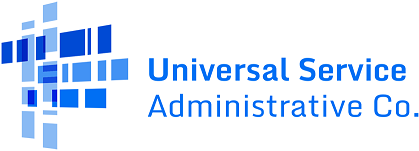Commitment Adjustments/Recoveries
If USAC discovers that certain funds have been committed and/or disbursed in error, the Federal Communications Commission (FCC) requires USAC to rescind those commitments and recover funding that has been improperly disbursed. USAC refers to this process as the Commitment Adjustment (COMAD) process.
At times, USAC may conduct the following types of reviews and audits:
- Program Integrity Assurance (PIA)
- Audits
- Payment Quality Assurance (PQA)
- Invoicing
- Appeals
- Heightened scrutiny (e.g., competitive bidding, cost-effectiveness, special compliance, and other post-commitment reviews)
Commitment Adjustment (COMAD)
If a COMAD action is necessary, USAC provides both the applicant and the service provider with a Commitment Adjustment Letter (CAL). The CAL contains an Adjustment Report which lists the Funding Request Number(s) (FRNs), FCC Form 471 Application Number, Billed Entity Number (BEN), and Service Provider Identification Number (SPIN) impacted by the COMAD action. The CAL also includes explanation for the COMAD.
If a party wants to appeal the decision, information on how to prepare and submit an appeal is included in the letter.
For 2016 and later funding years, applicants and services providers receive CALs in the E-Rate Productivity Center (EPC) News feed. For FY2015 and earlier funding years, USAC emails the CAL to the contact person designated in EPC.
If the amount of funds disbursed to date exceeds the adjusted funding commitment amount, FCC rules require USAC to recover the funds disbursed in error. In these cases, USAC sends the CAL to the responsible party (service provider, applicant, or both parties). USAC copies the other affected party on the CAL.
If the amount of funds disbursed to date is less than the adjusted funding commitment amount, USAC continues to process valid invoices up to the adjusted funding commitment amount. If funds need to be recovered, USAC seeks recovery from the party responsible for the COMAD action or rule violation.
After you receive a COMAD letter
You have 60 days from the date of your CAL to file an appeal with USAC if you disagree with the commitment adjustment. Please see USAC’s Appeals page for more information on filing an appeal. If your appeal is not successful, you will have 60 days from the date of our appeal decision to request a waiver or file an appeal directly with the FCC. You can also make a payment to USAC in the amount at issue in the CAL if the funds have already been disbursed.
Demand Payment Letters and Red Light
Applicants and service providers who do not file an appeal within 60 days, are unsuccessful in their appeals or waiver requests, or who fail to pay the full amount in the CAL are issued a Demand Payment Letter and may eventually face:
- holds and dismissal of pending FCC Form 471 applications,
- holds and dismissal of pending invoices for the at fault applicant or service provider,
- ineligibility for participation in E-Rate and other USF programs until the recovery is paid,
- transfer of the debt to the U.S. Treasury for collection, and
- interest and other fees
Note for consortium applications: Entities that are on Red Light and are recipients of services on consortium application are not eligible to receive funding through the consortium, but the entire application may not be dismissed. These entities will have their goods/services removed through cost allocations on consortium applications and invoices. The party who filed the FCC Form 471 (e.g., the consortium lead) should file any appeal of a COMAD action. If you have any question regarding your CAL, please contact us.
Recovery of Improperly Disbursed Funds (RIDF)
When USAC discovers that funds were disbursed in error but the decision to commit the funds was correct, USAC will seek recovery of the improperly disbursed funds (RIDF). For example, if USAC paid an invoice that included ineligible products or services along with the approved products and services, USAC would seek recovery for the costs of the ineligible items. The commitment may not need to be adjusted when it is determined that a RIDF action is necessary. Once the improperly disbursed funds are returned to USAC, USAC will resume paying invoices submitted for that FRN that are for approved, eligible products and/or services.
